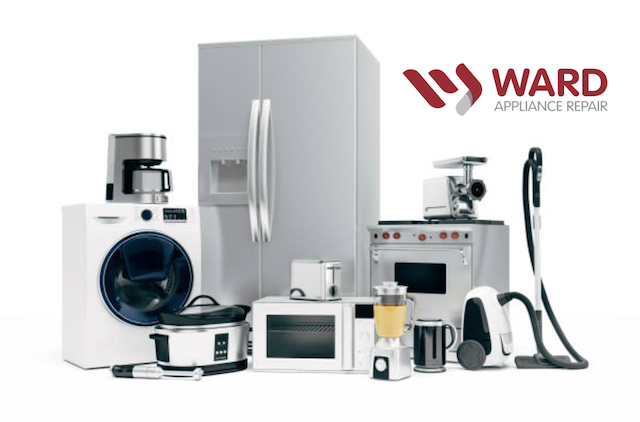Appliance Safety Tips

The appliances inside of your house can make your life less stressful, but if you operate appliances the wrong way, they might create significant risks. It is important to care for appliances and make sure they do not turn into dangers by following these helpful home appliance safety tips from Ward Appliance Repair.
The tips below can help prevent fires and injuries related to broken home appliances. Even still, hazards can still occur. If a home appliance has problems or malfunctions and becomes dangerous, hire a professional appliance repair Atlanta.
GFCI Outlets in Wet Locations
Kitchens, laundry rooms, basements, bathrooms, garages and outdoor areas are susceptible to moisture or water. Of course, electricity and water do not mix, so electrical cords should always be plugged into GFCI outlets.
This will prevent electrocution by tripping the circuit when any imbalances in electricity are detected.
If you do not already have GFCI outlets in wet areas inside of your house, it’s time to install them or call an electrician in Atlanta. Then, for additional safety measures, heed the warnings of certain appliance manuals that indicate an appliance is not designed for outdoor use.
Wires, Outlets & Electronics Far Away From Wet Areas
Some appliances are specially built for outdoor use, such as gas and charcoal grills, for example. If you use any electrical appliances outdoors – including dishwashers, refrigerators, freezers and ice makers, electric tools and others – ensure that all of the outlets and cords are dry. Weatherproof electronics help with this, along with GFCI outlets with gaskets that are water-tight.
Extension Cords are a Momentary Option
An extension cord poses several noticeable risks, including:
- The potential for loose connections that could result in sparks and a fire.
- The likelihood of power interruptions that can break the appliance.
- Increased susceptibility to moisture penetration that can cause electrocution.
- The likelihood of cords overheating and becoming a fire hazard when an inadequate extension cord is combined with a high-power appliance.
When determining an extension cord for limited-time use, be sure it is the appropriate gauge for the electrical equipment in question. The lower the gauge, the greater the size for the wire. For example, a basic household extension cord for a garden tool may have a 16-gauge cord whereas a bigger cord for a AC unit uses a 12-gauge wire.
Length is also a factor. The longer the cord is, the more power is lost on the way, a phenomenon referred to as voltage drop. Shorter extension cords are good for electric tools and similar equipment.
Always Be Sure to Read the Operating Manual for Any Appliance You Buy
It is obvious to assume that you know how to operate your new home appliance without consulting the manual, but reading the guidelines is important for many reasons:
- You will want to find out if your home’s wiring is enough to power the new appliance. You might need to install a circuit to prevent overloading any current ones.
- You learn about advanced features you would not have otherwise have known.
- You understand if the new appliance is intended for outdoor locations or not.
You don’t have the extreme stress that can come from attempting to use a home appliance without instructions or the fear of needing fast appliance repair if it breaks from misuse!
Unplug Small Appliances in Your Home When Not in Use
You can limit unnecessary energy consumption by unplugging small appliances when you aren’t operating them. This is because small appliances include LED indicators, clocks and other energy-draining features standby times.
Unplug TVs, computer monitors, routers, video game systems, smart phone chargers and more to stop unnecessary energy use. Just remember, it is alright to keep DVRs and similar items plugged in to not miss their background functions.
For even more tips on using home appliances safely, or to schedule an appliance repair company, please contact Ward Appliance Repair. Our repairmen in Atlanta can repair all major household appliances!
OTHER RESOURCES:
Appliance Repair Cost
DIY Appliance Repair Tips
Repair or Replace Appliances
Refrigerator Parts
Home Services Campaign Disclaimer: This site is a free service to assist homeowners in connecting with local service providers. All contractors/providers are independent and this site does not warrant or guarantee any work performed. It is the responsibility of the homeowner to verify that the hired contractor furnishes the necessary license and insurance required for the work being performed. All persons depicted in a photo or video are actors or models and not contractors listed on this site.
Copyright ©2025 Ward Appliance Repair
